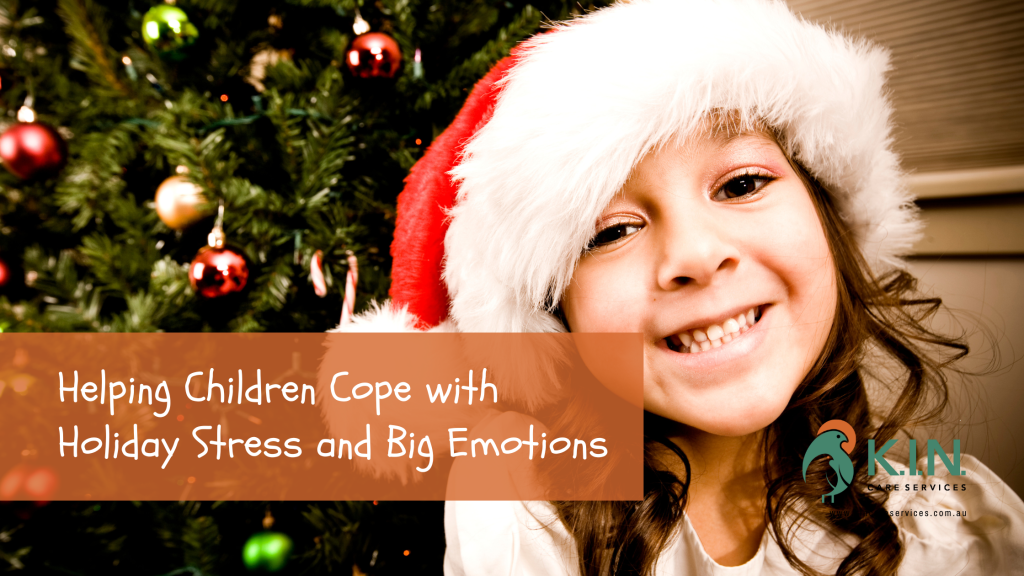The holiday season can be a magical time for families, but it can also bring challenges, especially for children. The excitement, changes in routine, and heightened expectations can sometimes lead to stress and big emotions. For parents and carers, understanding how to help children navigate these feelings is essential to creating a more enjoyable holiday experience for everyone.
Recognising Holiday Stress in Children
Children often experience stress differently from adults. Signs of holiday stress might include:
- Increased irritability or frustration.
- Withdrawal from family activities.
- Difficulty sleeping or changes in appetite.
- Increased clinginess or separation anxiety.
Understanding these behaviours as signs of stress rather than misbehaviour can help you approach your child with empathy and patience.

Why the Holidays Can Be Overwhelming
The holiday season often disrupts the familiar routines children rely on for security. Late nights, unfamiliar gatherings, and changes in daily activities can be overwhelming, particularly for younger children or those with emotional sensitivities. Adding to this, the pressure to “enjoy the season” can create unrealistic expectations that leave children feeling frustrated or anxious when things don’t go as planned.
Tips for Supporting Children During the Holidays
Here are practical strategies to help children cope with stress and regulate their emotions during the holiday season:
1. Maintain Routines Where Possible
Consistency is key to helping children feel secure. Try to keep mealtimes, bedtimes, and other daily rituals as consistent as possible, even amidst holiday events.
2. Prepare Them for What’s Ahead
Discuss upcoming events and what they can expect. For example, explain who will be at family gatherings or what activities are planned. Knowing what’s coming can reduce anxiety.
3. Give Them Space to Express Their Feelings
Encourage your child to talk about their feelings. Create a safe, non-judgmental space where they can share if they’re feeling overwhelmed or upset. Validating their emotions can help them feel understood.
4. Create Calm Moments
Build quiet time into your holiday schedule. Activities like reading, drawing, or simply spending time together can help children recharge and manage their emotions.
5. Teach Simple Coping Skills
Introduce age-appropriate coping techniques such as deep breathing, mindfulness exercises, or counting to ten when they feel overwhelmed. These tools can empower them to manage stress more effectively.
6. Set Realistic Expectations
Help children understand that it’s okay if everything doesn’t go perfectly. Remind them—and yourself—that the season is about connection, not perfection.
When to Seek Additional Support
If your child’s stress or emotional difficulties persist or seem particularly intense, it may be helpful to seek professional guidance. At K.I.N Care Services, we provide family support and resources to help children and parents navigate challenging times.
Prioritising Well-Being This Holiday Season
The holidays can be both joyful and challenging, but with a little planning and support, you can help your child manage their stress and big emotions. By focusing on their well-being and maintaining open communication, you can create a holiday experience that’s meaningful and enjoyable for everyone.

